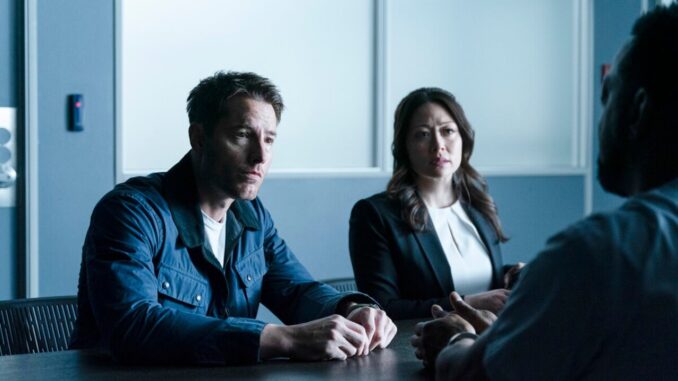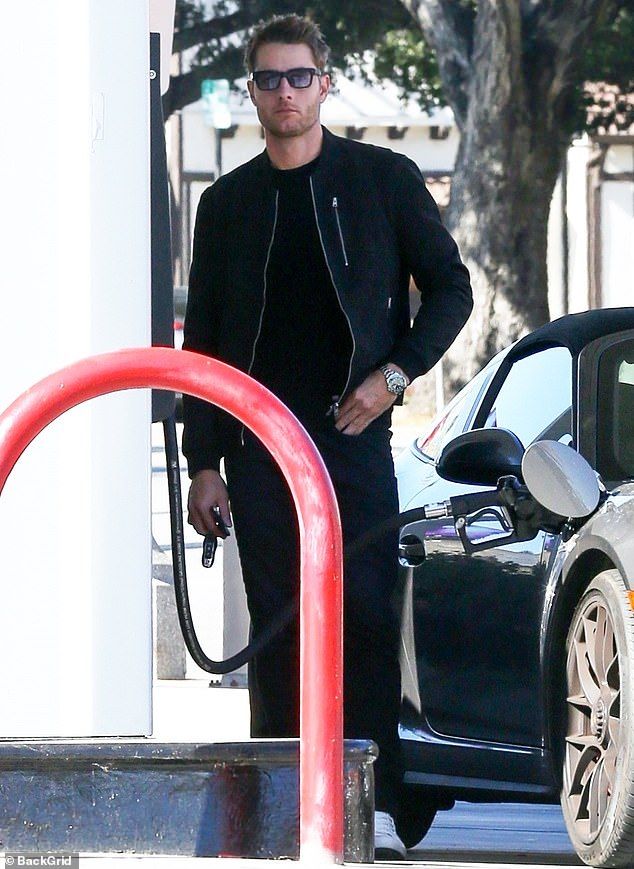
A teen track star who hit an opponent on the head with a baton during a Virginia state championship race is speaking out, calling it an accident. “I know my intention is that I would never hit somebody on purpose,” said Alaila Everett, a senior at I.C. Norcom High School, in an emotional interview with local outlet WAVY TV 10. The teen’s perspective comes five days after the 4×200 meter relay at a state indoor championship at Liberty University, during which Everett was seen striking her opponent, Kaelen Tucker, with a baton, according to local news outlet WSLS 10.
The incident on Tuesday, March 4 was captured on video and showed Tucker, a junior from Brookville High School, clutching her head and falling towards the infield after the hit. Kaelen was later assessed by a doctor and was told she had a concussion and possible skull fracture, according to the outlet. The I.C. Norcom High School team was disqualified from the event.
The school told PEOPLE that it immediately reported the incident to the Virginia High School League (VHSL), which is continuing an investigation into the matter. “We are cooperating with the VHSL in its work,” said Dr. Lauren Nolasco, the chief communications officer for Portsmouth Public Schools. “The division will support and follow the ruling that comes from the VHSL upon its completed investigation.”
In a world where sportsmanship is paramount, an incident during a high school track meet has ignited a firestorm of debate. Alaila Everett, a senior at I.C. Norcom High School in Portsmouth, Virginia, struck her opponent, Kaelen Tucker, in the head with a baton during a 4×200-meter relay race at the Virginia High School League (VHSL) Class 3 Indoor Championships. The moment was captured on video and quickly went viral, leading to widespread outrage and speculation about whether the act was intentional.
The Incident: A Split-Second Decision with Lasting Consequences
The race was unfolding as expected until the baton exchange between Everett and Tucker. As Tucker approached Everett, the two runners jostled for position. In the heat of the moment, Everett’s baton made contact with Tucker’s head, causing her to stumble and fall. The impact resulted in a concussion and a possible skull fracture for Tucker, sidelining her from the competition and sparking a wave of reactions from the public.
Alaila Everett’s Response: An Emotional Plea for Understanding
In the aftermath, Everett broke her silence, insisting that the incident was accidental. In an emotional interview, she explained, “I lost my balance, and when I pumped my arms again, she got hit. I know my intentions, and I would never hit somebody on purpose.” She further stated that the viral video captured only one angle of the event, which might not accurately represent the circumstances leading up to the incident.
The Backlash: Online Harassment and Legal Repercussions
Despite Everett’s claims, the public response was swift and harsh. She reported receiving death threats and racial slurs online, with many accusing her of intentional harm. In addition to the online backlash, Everett faced legal consequences. She was charged with misdemeanor assault and battery, and her team was disqualified from the race.
Kaelen Tucker’s Perspective: A Call for Accountability
From Tucker’s standpoint, the incident was not just an accident but a deliberate act. Her mother, Tamarro Tucker, expressed frustration over the lack of an apology from Everett and her team, stating, “My whole thing was no apology… Even if it was an accident — which I don’t believe it was — but nothing.” The Tuckers have since pursued legal action, seeking justice and accountability for the incident.
The Role of Social Media: Amplifying the Controversy
The rapid spread of the video on social media platforms played a significant role in escalating the situation. What might have been a localized incident quickly became a national controversy, with individuals from across the country weighing in on the matter. While some supported Everett, believing the act was accidental, others condemned her actions as intentional and malicious.
The VHSL’s Stance: Upholding Safety Standards
The Virginia High School League (VHSL) took swift action in response to the incident. A spokesperson stated, “The VHSL does not comment on individuals or disciplinary actions due to FERPA… The actions taken by the meet director to disqualify the runner were appropriate and correct.” This decision underscored the league’s commitment to ensuring the safety of all participants in its events.
Public Opinion: Divided Views on Intentionality
The public’s opinion on whether the baton strike was intentional remains divided. Some argue that the act was a result of the competitive nature of the race and an unfortunate accident. Others believe that the contact was deliberate, pointing to the manner in which Everett swung her arm during the baton exchange. The differing perspectives highlight the complexities of interpreting actions in high-pressure sports environments.
The Impact on Both Athletes: Physical and Emotional Toll
While Tucker suffered physical injuries, Everett has faced significant emotional and psychological challenges. The intense public scrutiny, online harassment, and legal troubles have taken a toll on her mental well-being. In interviews, she has expressed feelings of being misunderstood and unfairly judged based on a brief video clip. Her situation underscores the broader issue of how athletes are portrayed and judged in the digital
Legal Implications: Assault Charges and Disqualification
The legal ramifications of the incident are still unfolding. Everett’s misdemeanor assault and battery charge carries potential consequences that could impact her future, both academically and athletically. Additionally, the disqualification of her team from the race serves as a reminder of the serious consequences that can arise from actions taken during competition.
The Importance of Sportsmanship: Lessons Learned
This incident serves as a poignant reminder of the importance of sportsmanship in athletics. Regardless of intent, actions during competition can have lasting effects on both participants and the broader community. The controversy surrounding the baton strike emphasizes the need for athletes to maintain respect and consideration for their fellow competitors.

Looking Ahead: Rebuilding Trust and Moving Forward
As both Everett and Tucker navigate the aftermath of the incident, the focus should shift toward healing and rebuilding trust. For Everett, this means addressing the public’s concerns and demonstrating accountability for her actions. For Tucker, it involves seeking justice and ensuring that such incidents are prevented in the future. Both athletes have the opportunity to emerge from this controversy stronger and more resilient, with a renewed commitment to the values of sportsmanship.
Conclusion: A Cautionary Tale for the Sports Community
The baton incident at the VHSL Class 3 Indoor Championships has highlighted the complexities of interpreting actions in high-pressure sports environments. It underscores the need for athletes, coaches, and officials to prioritize safety, communication, and accountability. As the sports community reflects on this event, it serves as a cautionary tale about the potential consequences of actions taken in the heat of competition and the importance of maintaining integrity both on and off the field.